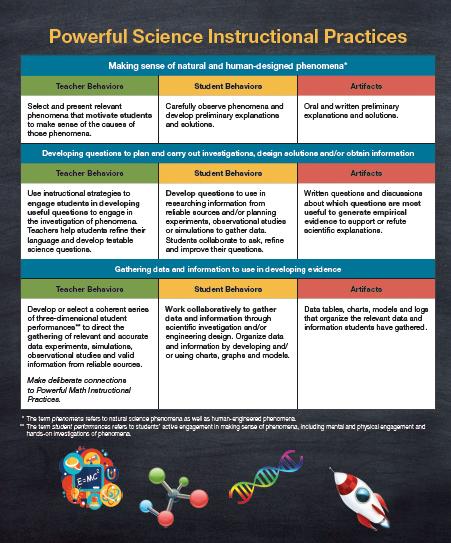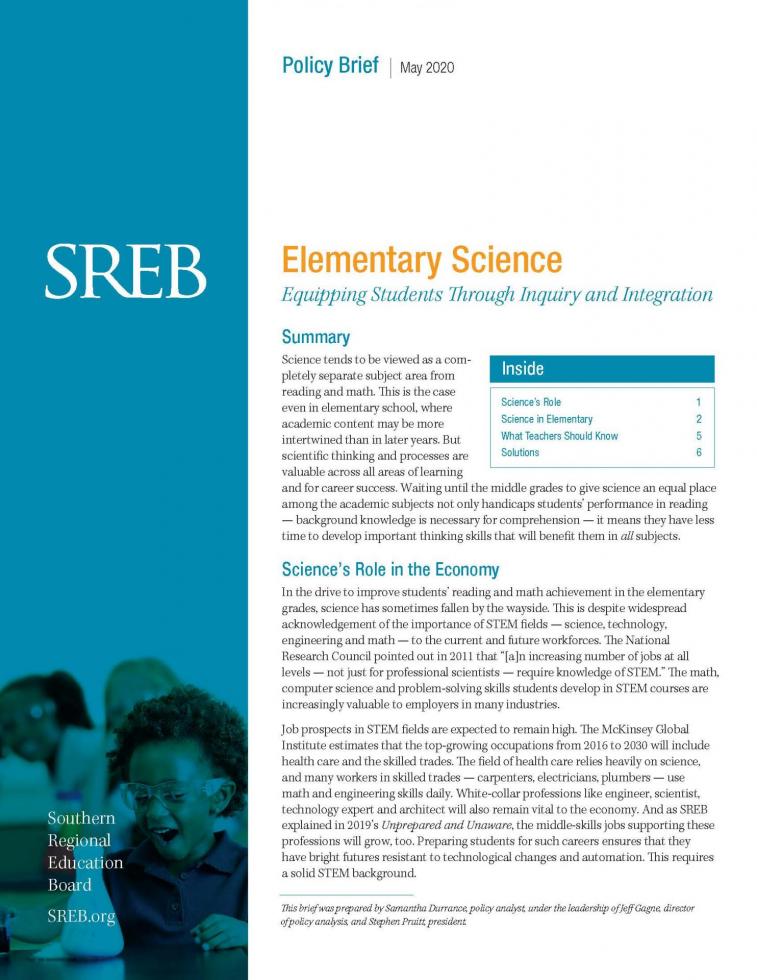Powerful Science Instructional Practices
 Explore how SREB’s eight
Powerful Science Instructional Practices engage
students in gathering, analyzing and reasoning with data,
designing studies and experiments, learning and using the
language of science and engineering, cultivating strong literacy
and math skills, and much more.
Explore how SREB’s eight
Powerful Science Instructional Practices engage
students in gathering, analyzing and reasoning with data,
designing studies and experiments, learning and using the
language of science and engineering, cultivating strong literacy
and math skills, and much more.
Our quick-reference rubric presents examples of teacher and student behaviors and learning artifacts found in classrooms that embrace these eight practices:
- Making sense of natural and human-designed phenomena
- Developing questions to plan and carry out investigations,
design solutions and/or obtain information
- Gathering data and information to use in developing
evidence
- Reasoning how the evidence supports an explanation for the
causes of phenomena
- Engaging in academic discourse
- Presenting evidence of learning
- Communicating reasoning through an individual
three-dimensional performance
- Applying science learning beyond the classroom to make sense of natural and/or human-designed phenomena
A separate model document illustrates how teachers can use the Powerful Science Instructional Practices to engage students in science learning.


